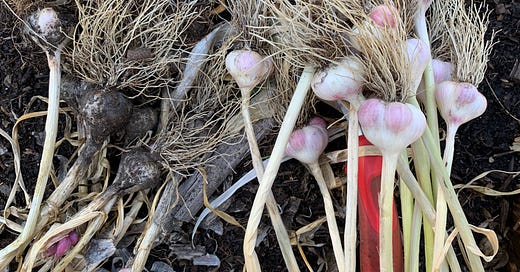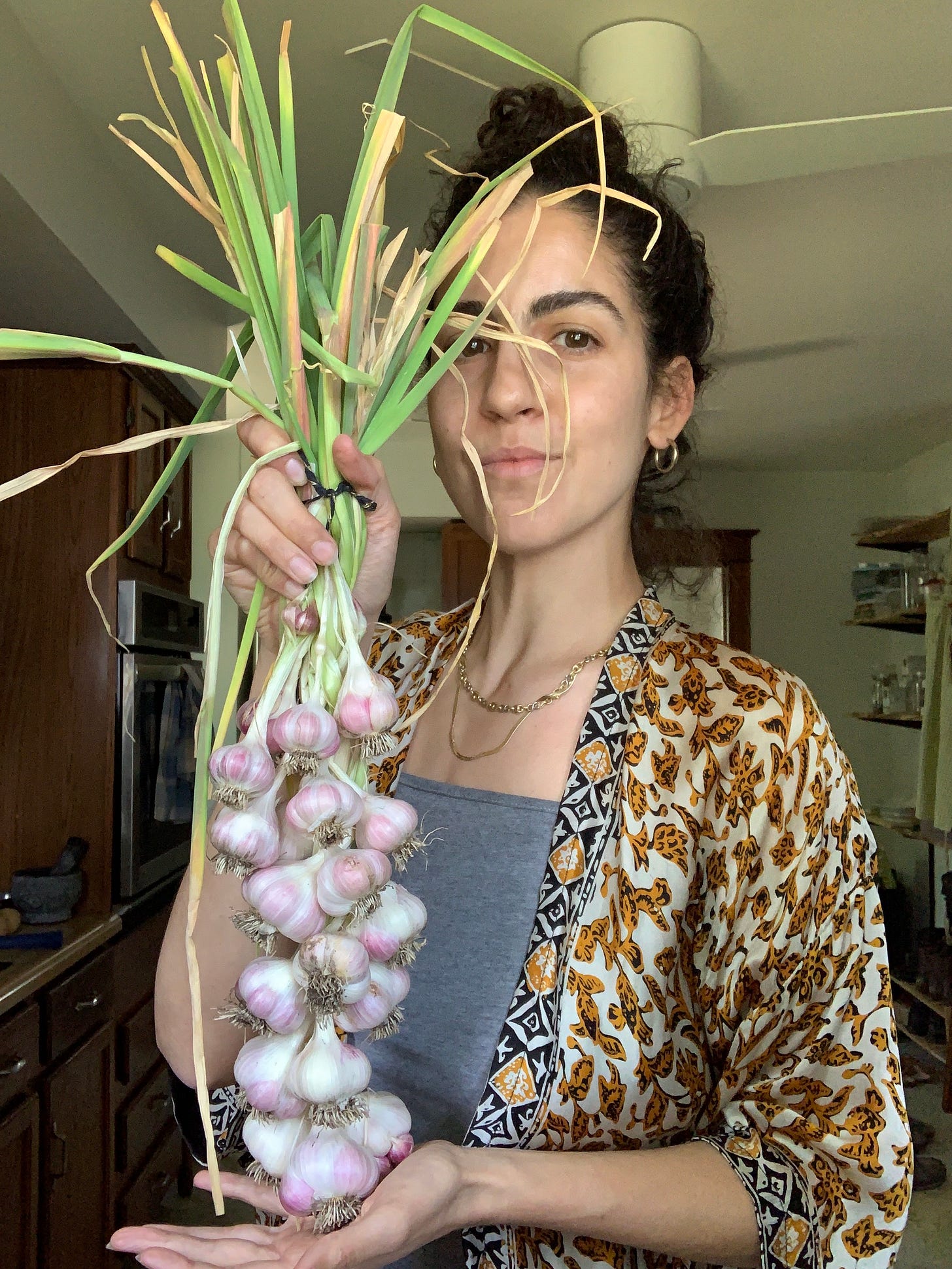Hi, hitting the heart button is a really good & free way to support these Offerings. Thank you! <3
This week I dug up my first ever garlic harvest and finished Ami Harbin’s book Disorientation and Moral Life. I was interested in reading Harbin’s book because I want to believe disorientation can be beneficial even when re-orientation is not immediately possible, and especially when the disorientation was not chosen.
Harbin thinks that experiences of disorientation can be morally valuable, and that even when we’re not sure how to go on we can in some cases experience what she calls “tenderizing effects.” Importantly, she doesn’t think about being tenderized the way one might think of cultivating a virtue or coming to “possess stable traits, like courage or temperance.” Rather, if and when we are tenderized through disorientation we may come to relate with others and a particular moral landscape “in more tentative, dynamic ways that can change in keeping with changes in that landscape.”
I am relating to my own landscape in what I would call a more tentative, dynamic way since my body stopped doing what I was sure I needed it to do. Since my hands and arms have been in so much pain these last weeks, I’ve been trying to orient away from all the typing and scrolling and phoning and toward other sorts of actions. I’ve realized that when I’m indoors I orient habitually toward my phone and my laptop, so I made it a point this week to spend more time outdoors.
I live on a quarter acre property in the suburbs and—in tension with the norms of my neighborhood—typically avoid yard work aside from tending my four veggie beds. I grow peas in the springtime, peppers, tomatoes, and eggplants in summer, cooking greens most of the year and lots of herbs all the time that I tell myself like to be left alone. In June I plant zinnias in the backyard, whose firework blooms help get me through summer.
This week, as a testament to what Harbin might call the “contingency of norms,” I did yard work. I wore yoga pants and pulled the vines that were choking my rosebushes. I trimmed back the yews and weeded the herb bed. I picked up sticks from the oak tree who’s not doing so well, which will be kindling for solstice next week.
The pain and consequent limitations of my body have been disorienting for sure but not nearly as harrowing as disorientations of yore (by which I mean last year). I think this is because a.) desirable options for re-orienting are so readily available, and b.) some of these changes I’ve been wanting to make.
For years now I’ve been keenly aware of how much better my body feels when I’m grooming a horse, or running my fingers through soil to make a trench to put seeds in, or harvesting peas! Or, as I’ve newly learned, scraping layers of dirty garlic skin off of freshly dug bulbs. As opposed to, say, scrolling Twitter, or typing an email, or even texting someone I love.
Harbin’s idea of epistemic humility is one of my favorites. Part of what it means is that through disorientations we may come to “act more tentatively” on the basis of what we think we know because we’ve realized the limits of what we’d assumed. We might get more used to “revisiting and revising.” Through experiences like these, we may come to notice “the fallibility of knowers and the shifting landscape of all we need to know.”





